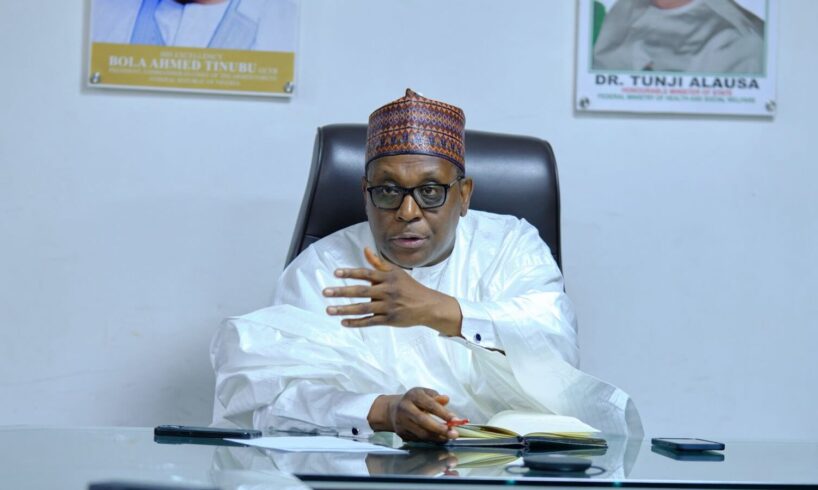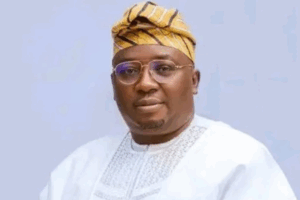
The Coordinating Minister of Health and Social Welfare, Muhammad Pate, has said sexual and reproductive health indices are critical for national development, economic growth, and improved human capital outcomes across Nigeria.
Mr Pate said this on Monday in Abuja during a two-day National Policy Dialogue on Adolescent and Youth Sexual Reproductive Health and Development (AYSRH&D), organised by the Society for Family Health (SFH).
Mr Pate was represented by Binyerem Ukaire, Director and Head of the Department of Family Health, who conveyed his message to stakeholders attending the high-level national consultation and policy dialogue.
He described adolescent and youth sexual and reproductive health as not merely a health concern but a human capital priority, a social justice issue, and a driver of Nigeria’s long-term economic future.
“When youth access accurate information, quality services, and supportive systems, they make informed decisions that influence their education, well-being, and economic participation,” he said.
“However, many adolescents face major obstacles, including harmful cultural practices, poor access to care, gender inequality, early marriage, unsafe sex, and drug abuse.”
He also identified barriers hindering youth development and health.
Mr Pate said these problems threaten not only their health but also reduce their capacity to meaningfully contribute to their communities and the broader development agenda.
He said the federal government remains committed to strengthening reproductive, maternal, newborn, child and adolescent health services through the Nigerian Health Sector Renewal Investment Initiative under a sector-wide coordination approach.
He highlighted that policies like the National Policy on Health and Development of Adolescent and Young People are in place to improve access, inclusivity, and equity in service delivery nationwide.
The minister described the policy dialogue as a platform to galvanise leadership, enhance collaboration, and generate data-driven, high-impact interventions to improve adolescent and youth sexual and reproductive health and development outcomes.
“This dialogue is a chance to ensure every Nigerian adolescent, regardless of sex, location, or background, accesses quality sexual and reproductive health information, education, and services for a healthier future,” he added.
The Managing Director of SFH, Omokhudu Idogho said Nigeria is experiencing demographic shifts with implications for adolescent health and youth-focused policy development.
Mr Idogho, represented by Deputy Managing Director of SFH, Jennifer Anyanti, noted that the national fertility rate declined from 5.3 per cent in 2018 to 4.8 per cent in 2024, while youth health discussions now increasingly influenced primary healthcare and national policy frameworks.
He said teenage pregnancy remains concerning at 15 per cent, with the highest incidences in rural and low-income communities, according to the 2023/2024 National Demographic and Health Survey (NDHS) data.
“HIV prevalence among youth stands at 5.2 per cent, higher than the national average, while 17.2 per cent of young women reported having contracted a sexually transmitted infection (STI), he added during his remarks.
He also said uptake of modern contraceptives remains very low.
READ ALSO: Misinformation fuelling HPV vaccine hesitancy in Nigeria – Report
Mr Idogho emphasised the urgent need for a comprehensive, multisectoral approach to adolescent health that integrates education, life skills, mental health, and social protection within health and development frameworks.
He identified key reforms, including MAMII, the Yo! Health Initiative, AGILE, and expansion of health insurance, as strategic opportunities to deliver adolescent-friendly services across all regions of Nigeria.
In her remarks, the Commissioner for Women Affairs in Adamawa State, Neido Kofulto, urged traditional and religious leaders to help demystify reproductive and menstrual health through open discussions to promote knowledge, prevention, and support systems.
Ms Kofulto said open dialogue with our children can save lives, prevent long-term harm, and encourage early detection and protection, even against rising health threats like reproductive cancers.
NAN reports that the two-day policy dialogue aims to build consensus, identify implementation gaps, and renew commitment to prioritising adolescent and youth sexual and reproductive health and development across Nigeria.
(NAN)





